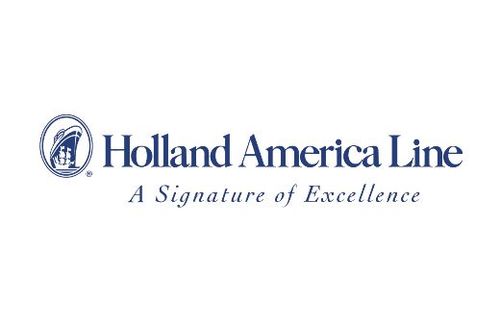Where travel agents earn, learn and save!
News / Guidance for travel industry businesses during the coronavirus pandemic
As lockdown arrangements continue, businesses and their consumers face new challenges

The current picture: The implications of the current COVID-19 pandemic are widespread. The Government has issued a statement advising against all unnecessary foreign travel gov.uk In addition, wider restrictions are also in place which prevent all types of UK travel for non-essential reasons, including travel and holidays. These arrangements are for the foreseeable future. However, they could also be removed at any time. As lockdown arrangements continue, businesses and their consumers face new challenges. The travel sector is no exception – in fact, it is one of the most severely disrupted.
What about the law?
Legislation exists that sets out the responsibilities of holiday providers and retailers with regard to customer contracts, cancellation and compensation. These measures are in place to protect consumers and provide a level playing field for businesses. For more information on this, see Business Companion's In Depth Guide on Package travel and holidays businesscompanion.info For travel, accommodation and events which do not constitute a ‘package,’ other legislation exists to protect the rights of consumers and in most cases will entitle them to a refund for cancelled events or accommodation. For more information see Business Companion's In Depth Guide on the supply of services businesscompanion.info. These unprecedented times have so far shown that pragmatism, communication and trust have important roles to play when the strict application of legislation may not be appropriate. These unprecedented times have so far shown that pragmatism, communication and trust have important roles to play when the strict application of legislation may not be appropriate.
What should I be doing for my customers and the holidays they’ve booked?
With the above in mind, advice from trading standards for the travel sector is to: Keep communicating with your customers about the steps you are taking now and those you intend to take in the future. Be as honest and as accurate as possible. If you don’t have all the answers, say so. Appeal to your customers for patience while you do everything you can to resolve their concerns – most people understand that businesses are facing huge pressures on services and finances and that they might have to wait a little longer. Deal with the most imminent travel plans first because the situation changes daily. Let your customers know that this is what you are doing, and why. Advise customers to check their travel insurance cover, in case they need to access it. Keep in contact with reliable sources of information, such as via your trade association or Primary Authority partner (if you have one) gov.uk. The ABTA website provides freely accessible guidance for industry and consumers on refunds, with more detailed support accessible by members only abta.com.
For package holidays (including cruises)
Keep a close eye on the Government’s advice and contact customers to advise that travel plans have been cancelled, prioritising those with the most imminent travel plans. The Package Travel and Linked Travel Arrangements Regulations 2018 (‘PTRs’) still apply. A full refund or re-booking (if the provider is ABTA or ATOL protected) should therefore be offered. A credit note is another increasingly popular alternative and may be financially protected in the event of future failed travel plans. Latest CMA advice is that credits, re-booking or re-scheduling may be offered as an alternative to a refund, but a refund should still be an option that is just as clearly and easily available. Any restrictions that apply to credits, rebooking or re-scheduling, such as the period in which credits must be used or services re-booked, must also be fair and made clear to consumers. If refunds are taking longer due to the high number being processed, let your customers know and try to complete the refund within a reasonable time. The latest CMA advice is here: gov.uk; abta.com
What about flights?
For flight cancellations the Civil Aviation Authority (CAA) website gives guidance on EU Regulation EC261 which applies to cancellations, namely the option of a full refund or alternative flights. However, alternative flights are not possible to arrange at the current time caa.co.uk. Compensation for flight cancellations made within 14 days of the booking date would normally be paid to consumers under EC261. However, the current C-19 crisis may be deemed ‘extraordinary circumstances’ and therefore this may not apply where the Government has advised against travel.
What if a customer doesn’t want to travel once restrictions are lifted?
If the Government declares it is safe to travel, but a customer no longer wishes to go, there is no obligation for you to offer a refund and normal cancellation charges may apply, according to your terms and conditions. It is quite likely that the extraordinary circumstances of the time may see the introduction of new and more empathetic cancellation outcomes by responsible businesses operating in the sector. Equally, customers who have lost out may be more discerning about cancellation terms and conditions when booking future trips.
Travel insurance and coronavirus
Some travel insurance policies bought before 1 March 2020 did not have coronavirus as an exclusion, which is good news for those affected. Financial Conduct Authority advice on travel insurance is here: fca.org.uk
Other events and UK accommodation
Similarly, for other UK travel, accommodation and events, the above advice applies and communication with consumers is key. For events which have been cancelled due to the restrictions on social gatherings, consumers should be offered a refund or a credit note if acceptable. If the event is to be re-scheduled, the consumer’s booking will stand for the re-arranged date, however, if the consumer cannot make that date they should be offered a refund.
What does the future hold?
Legally, there is a difference between a ‘refund credit note’ and a voucher – see ABTA’s website for more information. To embed appropriate alternatives, it is likely that a change to legislation will be required, which could take time. This is something which other EU countries have already started to consider, in order to support businesses in the sector and to protect customers. Remember that you should not seek payment for a service you know you’ll be unable to provide. But where there’s a reasonable expectation that travel plans will happen, then customers should continue to make payments towards it.
More Travel News: Commission’s guidance on how to safely resume travel and reboot Europe’s tourism in 2020 and beyond EU opens legal cases against countries over travel refunds Tui Group ready to resume travel activities ,Targeting 30 per cent cost reduction across the Group Emirates resumes passenger flights to 9 destinations











